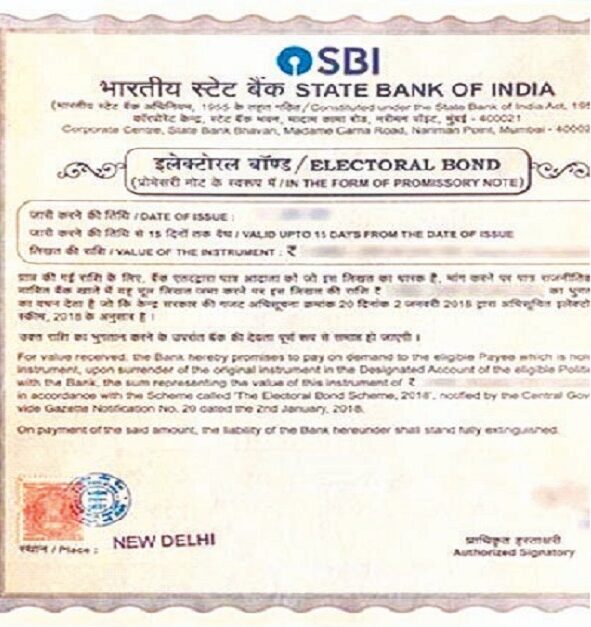The Opposition is labelling the contentious issue of Electoral Bonds usage as “extortion of funds by the BJP” while Prime Minister Narendra Modi asserts that the scheme has facilitated transparency in political funding. Since its inception in 2018, the scheme has been the subject of intense scrutiny and criticism from various quarters
 KRC TIMES Desk
KRC TIMES Desk

The Opposition is labelling the contentious issue of Electoral Bonds usage as “extortion of funds by the BJP” while Prime Minister Narendra Modi asserts that the scheme has facilitated transparency in political funding. Since its inception in 2018, the scheme has been the subject of intense scrutiny and criticism from various quarters. Opposition parties have taken up the cudgels against the Electoral Bonds scheme, alleging that it provides a veil of secrecy to big corporate donors who can channel funds to their preferred political parties without public disclosure. They argue that the lack of transparency undermines the very essence of democracy, as it allows for the unchecked influence of money on politics. Moreover, the Opposition accuses the ruling BJP of benefiting disproportionately from the scheme, alleging that it has turned into a tool for the ruling party to amass funds while sidelining smaller outfits. The recent revelations emanating from the State Bank of India documents fuelled these accusations, suggesting that the BJP has been the major beneficiary of the Electoral Bonds scheme. What is more disconcerting is that there are indications of a quid pro quo between the donors and the BJP. Many people ostensibly were let off the ED hook after buying hefty Electoral Bonds and donating them to the party in power.
In response, Modi has defended the scheme, asserting that it has made the process of political funding more transparent than ever before. He argues that earlier, political donations were made through cash transactions, which opened the doors for corruption and black money. The introduction of Electoral Bonds, according to the Prime Minister, has ensured that the flow of funds is traceable, thereby enhancing accountability and reducing the influence of illicit money in elections. Furthermore, supporters of the Electoral Bond scheme emphasise that it offers a legitimate channel for corporations and individuals to contribute to political parties without fear of reprisal or victimisation. Despite the divergent viewpoints, the issue of Electoral Bonds underscores the broader debate surrounding political finance reform in India. While the Government contends that the scheme promotes transparency and accountability, critics argue that it falls short of these objectives and instead perpetuates opacity and favours the ruling party. Perhaps the truth lies somewhere in between. Every scheme must be tweaked after it is launched to address the anomalies and loopholes to make it foolproof. Indeed, the Electoral Bonds scheme currently has too many of these and the Government would do well to relaunch it in a new avatar while addressing the lacunas. It remains to be seen whether the Government will ever address the concerns raised by the Opposition and civil society groups or persist with its defence of the controversial scheme. In a democracy, the integrity of electoral processes and the fairness of political competition are paramount, and any measures undertaken in the realm of political finance must be aimed at upholding these principles.



